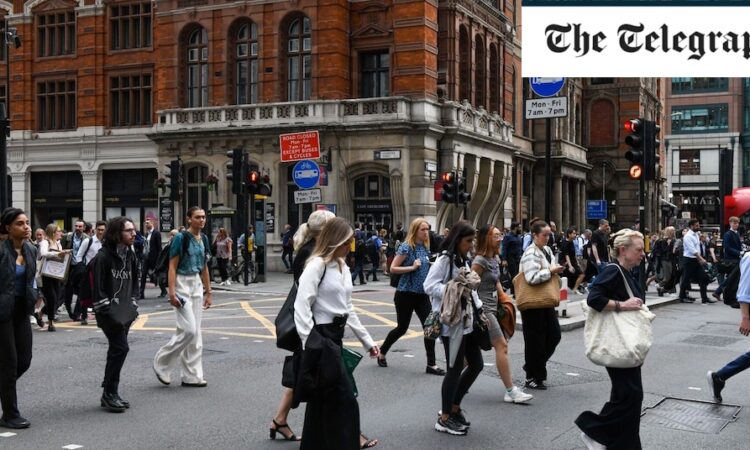
Wages have grown more over the past 12 months than at any time over the previous 16 years despite the productivity crisis plaguing Britain’s workforce, research shows.
After accounting for inflation, real earnings increased by about 2pc in the year to February, meaning workers’ pay packets stretch further than they did 12 months earlier, according to the Resolution Foundation.
It brings an end to a decade and a half in which wages barely grew faster than prices and at times, including the cost of living crisis, fell sharply behind living costs.
However, the think tank warned that if wages rise without extra output, additional costs imposed on businesses may threaten to push up inflation, which in turn could force interest rates to remain higher for longer.
Productivity has fallen over the past year, dropping by 0.6pc by the final quarter of 2023.
Gregory Thwaites, economist at the Resolution Foundation, said: “This means that what British workers can buy with their wages is rising just as the amount they produce in their jobs is actually shrinking.
“The positive side to this wage growth is that it has protected household incomes, but it may worry the Bank of England because real wages are rising faster than productivity per worker.”
Officials at the Bank of England, led by Governor Andrew Bailey, want evidence that inflation is back under control before cutting interest rates from their 16-year high of 5.25pc.
A key worry for the rate-setting Monetary Policy Committee is the strength of wage growth, with many workers switching jobs in order to get a pay rise.
However, there have been signs that this is starting to level off. The CIPD’s latest Labour Market Outlook report, showed on Monday that more workers were staying put in positions for greater job security rather than seeking out better-paid roles. It found 55pc of employers were expecting to maintain their staffing levels amid falling turnover levels in their workforce.
Read the latest updates below.






